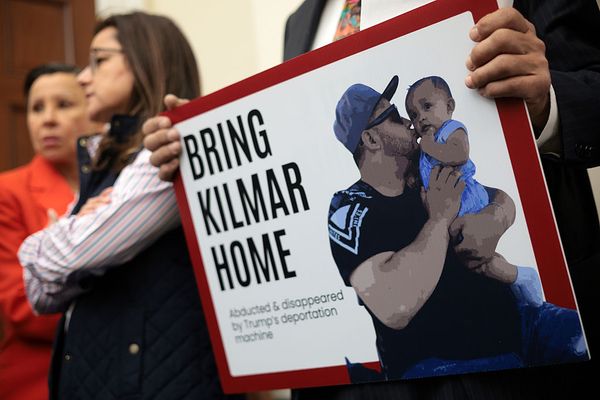
- Markets cheered the news of a 90-day pause on steep tariffs, but not everyone was comforted. One economist takes no solace in the president’s announcement and still believes there could be a recession, saying he can’t “fathom why the world is being put through all this unnecessary drama.”
Moments after President Donald Trump announced a 90-day pause on his sweeping tariff regime, Goldman Sachs pulled its recession call. “We are reverting to our previous non-recession baseline forecast,” the research note read.
Earlier, before Trump’s jaw-dropping social media declaration, the bank forecasted a recession; it put the odds of a downturn at 65%. But after more policy whiplash, Goldman Sachs sees a 45% recession chance.
Once Trump presented his tariffs on “Liberation Day,” the stock market spiraled, consumer and business sentiment dragged, recession warnings circled, and chaos in the bond market ensued. Talk of negotiations helped some, but it appears markets needed more.
JPMorgan chief executive Jamie Dimon called a recession a “likely outcome” in an interview early Wednesday before the news of a grace period. Trade deals were the one thing that could calm fears, Dimon said. And it just so happens Trump was paying attention. After announcing the pause, apart from a 10% blanket tax and the tariffs on China, the president told reporters: “He was very good, he said… something had to be done with the tariffs and trade,” Trump said referring to Dimon’s comments. “He understood it. He’s very smart.”
JPMorgan earlier put the odds of a global recession at 60%, but it is unclear whether the bank’s economists will rescind that warning, too. Apollo chief economist Torsten Sløk told Fortune after the pause, “the recession risk has now been removed.”
Markets are relieved: Stocks bounced back on the news. Treasury Secretary Scott Bessent claimed this was the president’s strategy all along, and Press Secretary Karoline Leavitt claimed the media “missed the art of the deal” in a brief press conference.
But not everyone is so relieved.
“I take no solace in the president’s announcement to delay the reciprocal tariffs for 90 days,” Moody’s chief economist Mark Zandi told Fortune. “Even if the administration can cut a few deals during this period, it will leave us with significantly higher tariffs, which are tax increases on American consumers and businesses.”
Zandi said the trade war with China is escalating—and trade between the U.S. and China could all but shut down. China happens to be America’s second-largest trade partner; Trump set a 125% tariff on China because it retaliated, the president said in his announcement.
“This will weigh heavily on the U.S. and global economies and likely result in a recession,” Zandi said. “To what end? There will be no boost to investment in the U.S. The trade deficit will be no smaller. And there won’t be any reliable increase in government revenues. It is impossible to fathom why the world is being put through all this unnecessary drama.”







